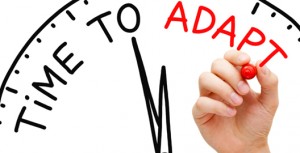Have you ever wondered what it was like to be a stranger? A person among a bunch of natives? Maybe you feel that now as you embark on your college journey, or prepare for life in the real world. While there are many scenarios of people adapting to a new culture or lifestyle, I have one that particularly sticks out.
A few years ago, I traveled to Australia, Fiji, and New Zealand as a Student Ambassador with People to People. This experience was one of a lifetime. I met so many young scholars and compassionate souls. In Australia, we played rugby, toured the Sydney Opera House, surfed at Bondi Beach, visited the Blue Mountains, rode the world’s steepest railway incline, and met aborigines. I also had the opportunity to eat kangaroo, barramundi, vegemite and other interesting cuisine. In Fiji we visited local tribes and villages. There we participated in a Kava Ceremony. We also visited a local school and participated in their daily routine. In New Zealand, I stayed with a homestay family and a farm stay family. I ate lamb for the first time. I toured the set of The Hobbit. I stayed the night with the Maori Tribe and participated in dance rituals with them. I even broke a board with my bare hand with an activity called Full On.
While this trip was life changing, I also had to adapt in many ways. So, what is the science behind adaptation? Well, according to John L. Gittleman from Encyclopedia Britannica, the process of adapting is chunked into three definitions. Basically, one can view adaptation physiologically, genetically, and biologically. An example of physiological adaptation on my trip would be adapting my sleeping schedule to the time changes and jet lag. I don’t believe a genetic adaptation can be applied to my trip. This is more commonly used in describing animals and their characteristics of genes. Biological adaptation is more so seen in humans or animals when they are in an environment suitable to their needs. For example, a baby joey is deemed to stay in their mothers pouch until survival on their own is attainable. This is a biological adaptation. They are initially housed in the pouch, their familiar environment.
Adapting to a new environment can be a struggle sometimes with many factors being added to the process. I was forced to adapt to the different types of food I ate, the time zone, and the culture of the countries I visited. However, adaptation is a beautiful thing. One can almost always adjust to its surroundings. Just think about it…life is made up of changes, and the only way to survive is to adapt.
http://www.climate-kic.org/wp-content/uploads/2013/08/adaptation.jpg
https://www.britannica.com/science/adaptation-biology-and-physiology


What a cool trip you were able to experience! I’ve traveled before, but nothing like you did on that trip! When I’ve traveled to France before, I do agree that the hardest part of adapting to the new country isn’t necessarily the culture, but changing your sleeping schedule and accounting for jet lag. I remember the first time I went to France, we landed at Charles de Gaul airport, and while it felt like 2 AM to our bodies, it was 8AM and we had a full day of planned activities ahead of us. (None of which I remember, of course, because I felt like a zombie that day.) According to an article by Dr Brandon Peters, the amount of timezones that is passed on a given trip is the key to figuring out how much sleep you will need to get caught up on when you get there. For example, if you only pass one time zone, it will take one day for you to get caught up, but if you fly farther, say, six time zones away, it will take you six days to get caught up on sleep. This is good to know because we shouldn’t force our bodies to keep going when we feel exhausted while traveling. (https://www.verywell.com/how-to-adjust-to-a-new-time-zone-and-avoid-jet-lag-3014936)